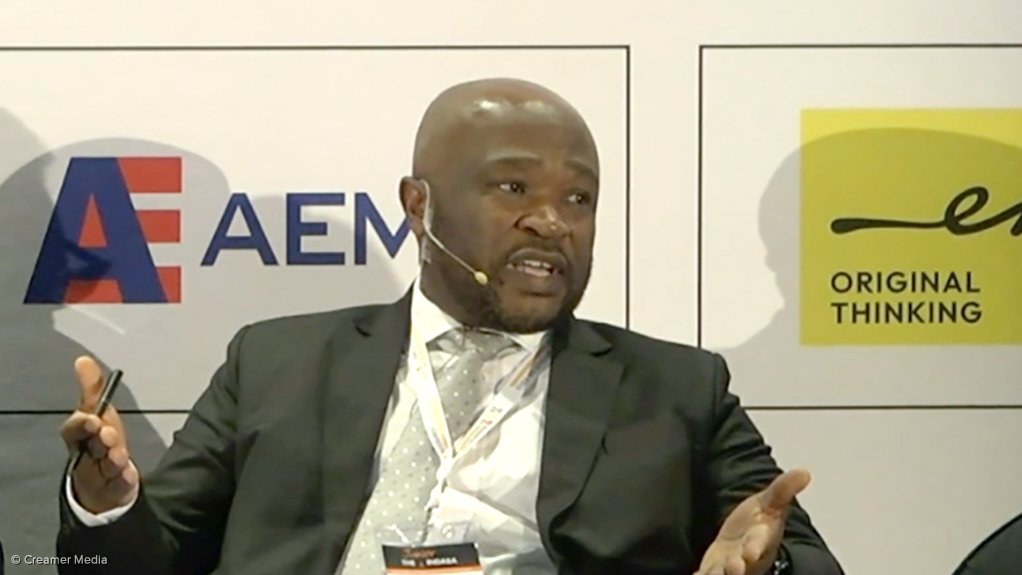Mining Other

Key public-private direction missing in new draft Minerals Bill, Junior Indaba hears

Drawing attention to South Africa’s 40% unemployment rate, Mthenjane made the point that South Africa’s mining industry has the capacity to play a huge role in alleviating joblessness by providing the skills needed for where mining is heading and not where it is right now.
"Current mines are saturated, but I’m talking about future mines. The very junior miners that we’re talking about today are going to need different skills. The mining industry of the past embarked on a very particular social design to make it succeed – low skills and no skills. But going forward, we now have the opportunity of a different social design, and for mining to play a role in taking South Africa forward," Mthenjane added at the event chaired by mining luminary Bernard Swanepoel. (Also watch attached Creamer Media video.)
Also taking part in the panel discussion covered by Mining Weekly were ENS head of natural Resources and environment practice Ntsiki Adonisi, who moderated, Department of Mineral Resources and Energy (DMRE) director-general Jacob Mbele, Council for Geoscience CEO Mosa Mabuza, and NSDV director Lili Nupen.
“We need to make sure that government and private sector work together, as we’ve seen demonstrated in other areas. We’ve got to harness the power of the private sector, not only in terms of skills and capability, but also in terms of capital,” Mthenjane highlighted in describing as “interesting” the decision of the DMPR to launch both the Critical Minerals Strategy and the draft Mineral Resources Development Bill on the same day.
“One of the things I constantly look for when a Minister speaks is how are they aligning their departmental function to the apex priority of economic growth and job creation. So far, not very many Ministers have done that, in my view. I've only heard Minister Kgosientsho Ramokgopa do so, and I think we're missing the opportunity from the DMPR with this draft Mineral Resources Development Bill to be proactive so that we’re all working in one direction, as government and private sector. Hopefully it will change.”
Mthenjane described as "very high level" the two engagements that Minerals Council had been afforded prior to the publication of the new draft Bill, but noted that the council's inputs were not apparent and that no access had been given to the new draft Bill's underlying wording and how it was being amended.
As an example, Mthenjane pointed to the oft-repeated public comments by Minister Gwede Mantashe that prospecting companies were excluded from the same empowerment requirements for holders of mining rights.
“We raised this point over and over in our engagements with the department, that the amendments must specifically exclude prospecting companies from empowerment requirements.
Exploration is the highest risk part of the mineral value chain and empowerment requirements imposed an unnecessary burden on prospectors who must sink every rand into drilling and data interpretation. Yet in this draft Bill, none of that is included,” the Minerals Council CEO pointed out, while committing to continue to review the Bill and to further engage the department to co-create a regulatory environment that will attract and support investment in exploration, mine development and the sustainability of existing mines, to unlock the potential of South Africa’s mineral resources for economic growth and job creation.












